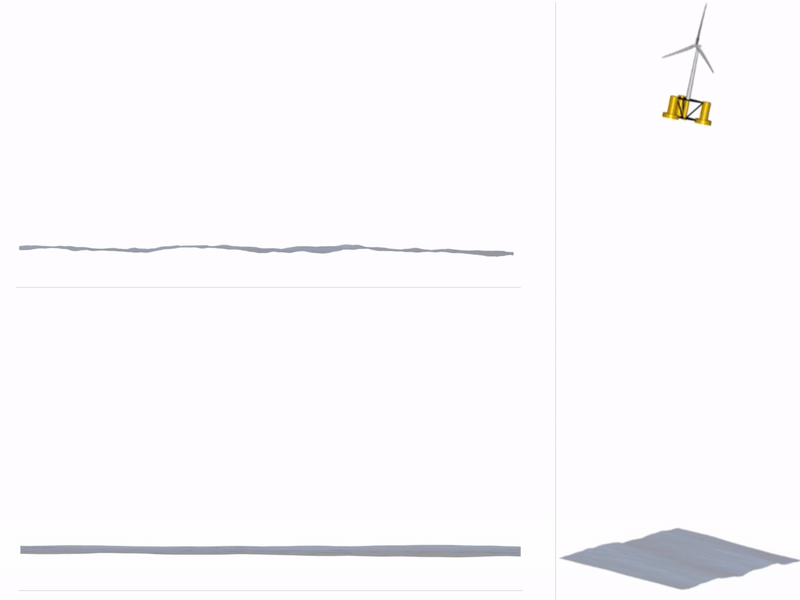Forum
Important Notice for New User Registrations
To combat an increasing number of spam and bot registrations, we now manually approve all new user registrations. While this may cause a delay until your account is approved, this step is essential to ensure the quality and security of this forum.
To help us verify your registration as legitimate, please use a clear name as user name or an official email address (such as a work, university, or similar address). If you’re concerned that we may not recognize your registration as non-spam, feel free to email us at with a request to approve your username.
Onshore foundation
Quote from msobrinho on 14. November 2022, 23:39Dear developers,
First of all I would like to thank you for sharing the Qblade.
I would like to understand if the software is able to represent the foundation nonlinear behaviour at the tower base by defining a curve moment – rotation?
From what I saw, the simulation is only possible by assuming that the turbine is fixed at the bottom. Is that correct?
Thank you,
Best regards,
Mário Sobrinho
Dear developers,
First of all I would like to thank you for sharing the Qblade.
I would like to understand if the software is able to represent the foundation nonlinear behaviour at the tower base by defining a curve moment – rotation?
From what I saw, the simulation is only possible by assuming that the turbine is fixed at the bottom. Is that correct?
Thank you,
Best regards,
Mário Sobrinho
Quote from David on 15. November 2022, 12:30Hi Mário,
it is possible to define springs (and also dampers) with custom p-y curves in QBlade’s substructure definition (see: https://docs.qblade.org/src/theory/environment/soil/soil.html).
These springs/dampers can then be constrained to any DoF of a structural node using the SUBCONSTRAINTS table (see here: https://docs.qblade.org/src/user/turbine/substructure.html#substructure-constraints).
We will upload an example of an offshore monopile foundation, which is modeled using these features, that can be used as a template in the next few days!
BR,
David
Hi Mário,
it is possible to define springs (and also dampers) with custom p-y curves in QBlade’s substructure definition (see: https://docs.qblade.org/src/theory/environment/soil/soil.html).
These springs/dampers can then be constrained to any DoF of a structural node using the SUBCONSTRAINTS table (see here: https://docs.qblade.org/src/user/turbine/substructure.html#substructure-constraints).
We will upload an example of an offshore monopile foundation, which is modeled using these features, that can be used as a template in the next few days!
BR,
David
Uploaded files:
- You need to login to have access to uploads.
Quote from msobrinho on 15. November 2022, 18:33Hi David,
Thank you.
I suppose that instead of force-displacement curves, I can use moment rotation nonlinear curves, right?
Best regards,
Mário
Hi David,
Thank you.
I suppose that instead of force-displacement curves, I can use moment rotation nonlinear curves, right?
Best regards,
Mário
Quote from David on 15. November 2022, 19:14Hi Mário,
yes, that should work. In this case you need to link the spring to one (or more) rotational DoF’s in the constraint table and specify the (nonlinear) moment rotation relationship in Nm/rad (instead of N/m for linear springs).
BR,
David
Hi Mário,
yes, that should work. In this case you need to link the spring to one (or more) rotational DoF’s in the constraint table and specify the (nonlinear) moment rotation relationship in Nm/rad (instead of N/m for linear springs).
BR,
David


